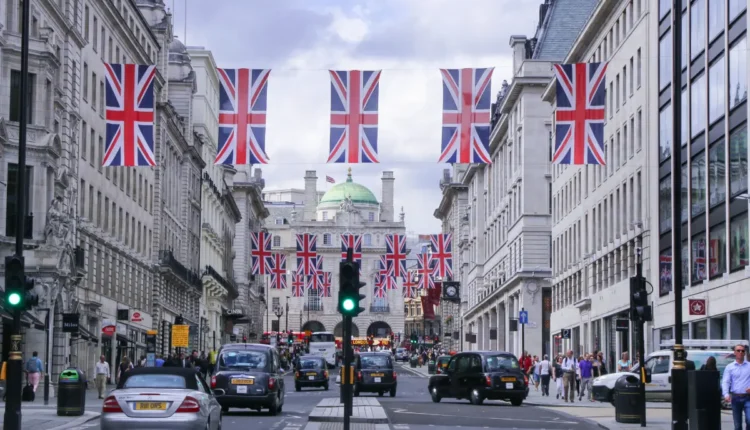Robert Jenrick Unveils Bold Immigration Plan, Targeting India and Vietnam
Robert Jenrick Aims to Slash Illegal Immigration with Severe Visa Restrictions
Robert Jenrick, one of the final four contenders in the race to replace Rishi Sunak as the leader of the Conservative Party, has set out a bold and controversial plan to tackle illegal immigration. Jenrick’s proposal includes “severely restricting visas” for countries that refuse to take back their nationals living illegally in the UK. Specifically targeting India and Vietnam, this ambitious approach could reshape the UK’s immigration policies if he succeeds in becoming Prime Minister.
Jenrick’s stance comes in response to the growing concerns about illegal immigration, particularly focusing on India, where an estimated 100,000 Indian nationals are believed to be residing illegally in the UK, according to reports from the Times of India. With the UK issuing a staggering 250,000 visas to Indian citizens for work, study, and tourism in 2023, the sharp contrast lies in the meager number of illegal migrant returns. Jenrick pointed out that despite the high volume of Indian visas, the number of removals remains “stuck in the hundreds.”
Robert Jenrick Plans for Increased Deportations
At the core of Robert Jenrick’s plan is a five-point strategy designed to increase deportations of illegal residents fivefold, setting a target to remove over 100,000 migrants annually. “It is time to play hardball with these countries and refuse to issue visas until they agree to take back their citizens who are living illegally in the UK,” Jenrick asserted during his campaign speech. The proposal aligns with the growing calls within the Conservative Party for stricter immigration controls.
This proposal builds upon the 2021 Memorandum of Understanding between the UK and India, which was intended to facilitate the return of illegal Indian nationals. However, progress has been slow. In 2023, only 22,807 illegal migrants were deported from the UK, with Indian nationals making up around 15% of this figure. Jenrick sees this as an unacceptable gap and a sign that tougher measures are needed to ensure cooperation from foreign governments.
Visa and Aid Conditionality
Robert Jenrick’s plan goes beyond deportations. Robert Jenrick emphasized the need for conditionality in both visa issuance and foreign aid, stating that countries unwilling to cooperate with repatriation efforts should face consequences. He cited Iraq, Somalia, and Afghanistan as nations that have benefitted from substantial UK aid without participating effectively in return agreements. “The government must stop other countries exploiting our generosity,” Jenrick argued, calling for stricter oversight of aid distribution.
Additionally, Jenrick has proposed legislative changes that would designate countries like Vietnam, Turkey, and Brazil as “safe” nations. This designation would, according to Jenrick, make it easier to negotiate the return of illegal migrants. “These are holiday destinations, not war-torn hellholes,” Robert Jenrick declared, signaling a shift in how the UK would categorize nations under immigration law.
Robert Jenrick also suggested that withdrawing from the European Convention on Human Rights (ECHR) could streamline deportation processes, particularly for foreign offenders who use legal loopholes to avoid removal.
A Critical Turning Point in the Conservative Leadership Race
Jenrick’s proposal is set to be one of the defining points of the Conservative leadership race. As the contest narrows to its final stages, his tough stance on immigration could resonate with party members who are seeking a firmer approach to the issue. His rivals, however, may see his proposals as too extreme, particularly the notion of penalizing countries like India and Vietnam, which have significant diplomatic and economic ties with the UK.
Nevertheless, Jenrick’s plan represents a potential turning point for UK immigration policy. By linking visa issuance and foreign aid to the cooperation of countries in repatriation efforts, Jenrick is pushing for a seismic shift in how the UK handles its immigration challenges. If implemented, his strategy could drastically alter visa availability for citizens of targeted countries and force tougher negotiations on deportation agreements.
Also Read:Zarina Bhimji: The Artist Who Turns Forgotten Spaces Into Poetic Narratives

